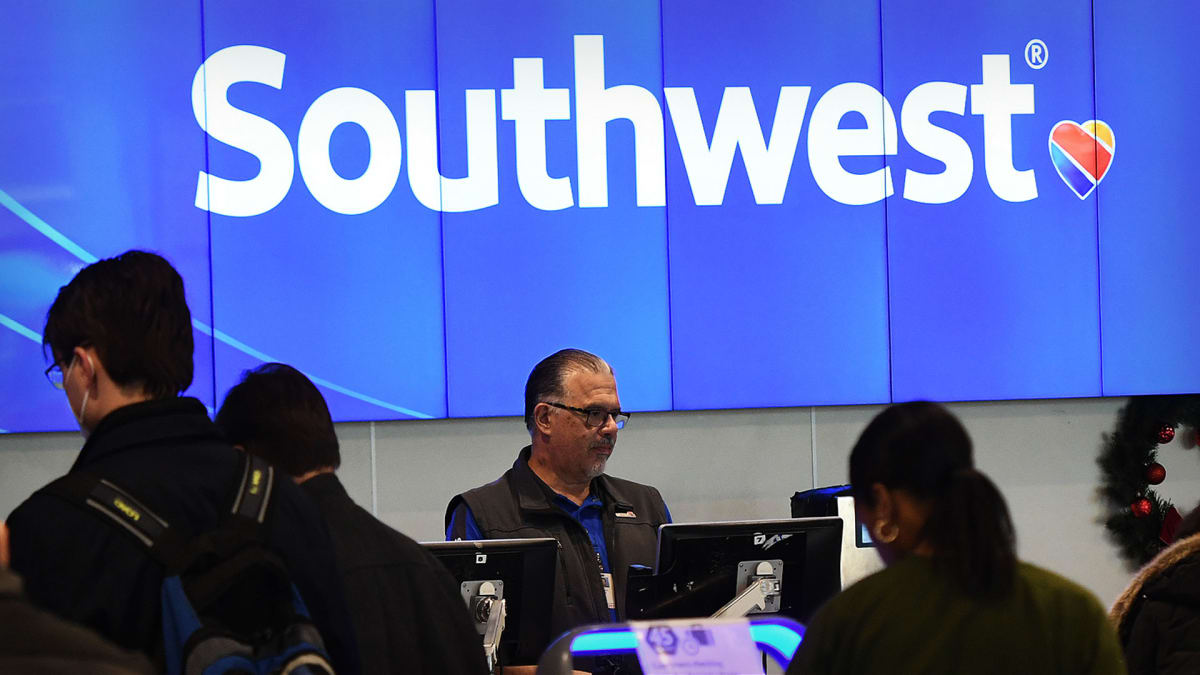
We knew Southwest Airlines (LUV) screwed up its holiday flight operations badly, but on Thursday we found out the exact breadth of the disruptions that plagued the airline.
The company said that it cancelled more than 16,7000 flights between December 21 and December 31.
"First and foremost, I want to apologize again to our customers and our employees for the impact of the operational disruption had on them and on their holiday plans," CEO Bob Jordan said to kick off the call.
Between December 27 and December 29, Southwest was forced to reduce its flight activity by about 2/3 due to the disruption, but the company still insists that "our processes and technology generally work as designed."
So what went wrong?
The company says that the kerfuffle started on the "weather event" before Christmas and eventually led to the chaos that ensued on the 23rd.
"From the 23rd, which was still a weather event and towards the 24th," flight cancellations put the company "behind in creating crew solutions. This level of close-in cancels led us to get behind and then we lost the use of the automation," the company said on the call.
The company then couldn't use automation to repair the individual crew member schedules.
"Consequently, without updated remember schedules, the can't reassign crew members to solve for flights with crew coverage issues," the company said.
"So the disruption uncovered a functional gap in our technology. However, this issue is in the process of being addressed."
Southwest says that it has three networks -- the flight network (which handles the flight schedules and tickets that are for sale) the aircraft network (that offers solutions "during irregular operations") and the crew network.
The company says it's confident in its flight and aircraft networks.
"For our crew network, the functional gap that was revealed in our crew scheduling software is in the process of being addressed and should be updated in a matter of weeks."
Southwest Answers Questions
CNBC's Jim Cramer suggested that the company needed to invest more money into its staffing technology, but when Jordan pushed back on the notion, the sparks started to fly.
His explanation for why the company mishandled its December debacle is being heavily questioned.
Southwest was the only U.S. airline to experience the massive delays during the Christmas holiday week, and the company will eventually have to answer questions from the U.S. Senate, after U.S. Senate Commerce Committee chair Maria Cantwell said her panel intended to hold hearings about the incident.
"Southwest's customers are rightfully dissatisfied and deserve better," Cantwell said earlier this month. "These consumers need refunds and reimbursements for their expenses."
The Disruptions Cost Southwest
Those cancellations had an after-tax net impact of $620 million, leading the company to report a fourth quarter net loss of $226 million.
It incurred an estimated $410 million revenue penalty due to the operational disruptions.
The company says it has completed more than 80% of the reimbursement requests they've received from customers for expenses related to alternative transportation.
Southwest says it plans to process the remaining requests by next week.
Despite the operational hiccups, Southwest says it generated record fourth quarter revenue of $6.2 billion.
But the hangover from the incident will also hurt its first quarter operations.
"Admittedly, we are starting off first quarter with a $300 million to $350 million headwind, which we assume is attributable to the operational disruptions in December," said Ryan Green, chief commercial officer.







